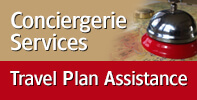Overtourism is a grave challenge that is harming the entire tourism industry. It has been covered in media and publications increasingly as a problem that stems from the very concept of travel, even if it encompasses just a small part of it.
Overtourism is not only completely unsustainable, it is a growing problem that should be taken seriously.
Policy responses to it are, in many cases, as clumsy and ill-considered as the policies which produced it in the first place. Overtourism can negatively affect travelers’ sentiment as well as the small-scale sustainable tourism industry.
Let us be clear from the outset: Overtourism does not result from ecotourism, and the principles of those who extol increasing tourism revenue to a destination at any cost are completely antithetical to those of ecotourism. Overtourism—which in its simplest form is tourism that harms communities by overuse or destruction of resources through overcrowding—stems from a lack of concern about destination community health and welfare. Again, this is entirely the opposite of the fundamental tenet of ecotourism.
Overtourism is the inevitable result of tourism that only considers the privilege of a tourist rather than a partnership between the traveler and the people of a destination. It is clear from our research and from the facts on the ground that the people, culture, environment and natural resources of a community are the most integral parts of tourism, not the traveler. Overtourism is a common problem in some “hot spots” where degradation caused by inflow can vastly overwhelm even the benefits of tourism revenue, especially when that revenue is not distributed equitably.
Developing countries are particularly sensitive to the effects of overtourism in their natural, economic, and social environments. Their waste and sewage systems are ill equipped to support large influxes of people, and overtourism often overwhelmingly litters the destination. Locals are pushed out of their homes and do not even get to participate in the tourism revenue economic benefits that result from the very use of their home communities. Wildlife habitats are razed down or compromised to make way for increased construction, culminating in the destruction of local communities.
Ecotourism is a positive alternative and the solution to this swelling crisis. Ecotourism can provide a near term, relatively low-cost solution to overtourism if it is implemented correctly. Ecotourism allows revenue to be distributed more evenly to underserved areas, while ensuring that tourism revenue stays within and works for the communities that engage in it. Consider the following, only a few of the many differences between ecotourism and overtourism that underscore this contrast and highlight why ecotourism is a very sound solution:
Ecotourism – Results from carefully planned tourism policies developed in partnership with communities, indigenous peoples, conservationists, and experts. – Considers the health and welfare of the community as one of the main goals of travel – Encourages travelers to diffuse naturally to areas underserved by tourism – Preserves and cares for natural resources – Results in sustainable revenue for the community
Overtourism – Results from unplanned, poorly managed tourism that seeks to maximize revenue by allowing as many tourists as possible – Concentrates tourists into small areas without regard to the destruction this causes – Considers revenue as the chief goal of tourism – Results in the destruction of natural environment – Results in tourism revenue going to a few privileged people
The growth of ecotourism will decrease overtourism, but our industry, and the wider travel industry as a whole, can be the part of the solution by:
– Creating more educational opportunities for professionals who are passionate about sustainability – Increasing the awareness of tourism’s impacts among travelers – Facilitating partnerships among professionals, organizations, communities, businesses, and travelers – Promoting sustainable initiatives around the world All of the above are goals of TIES.
Ecotourism and sustainable tourism community! www.ecotourism.org
.jpg)
